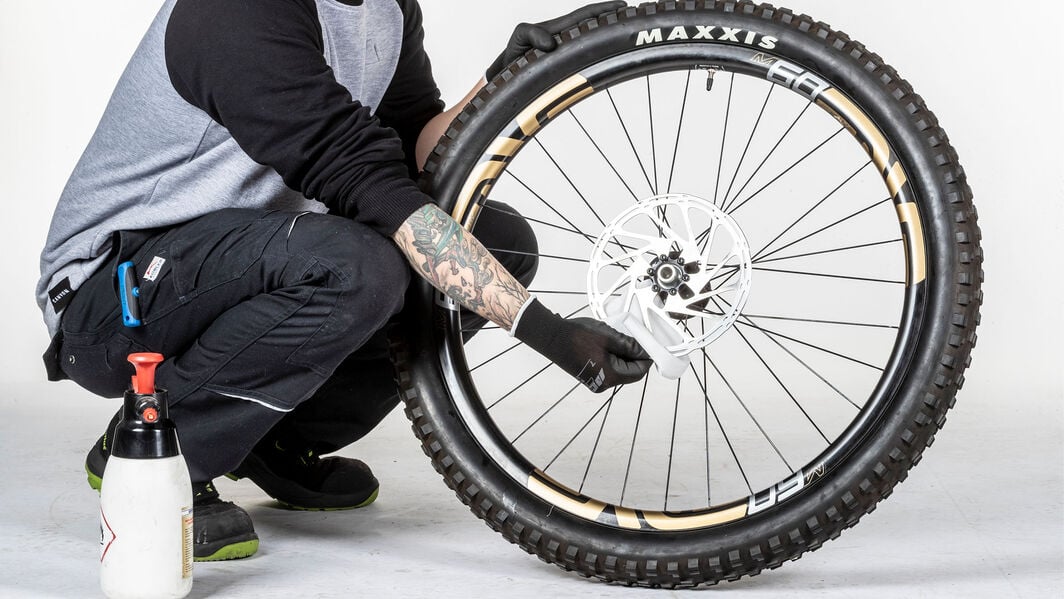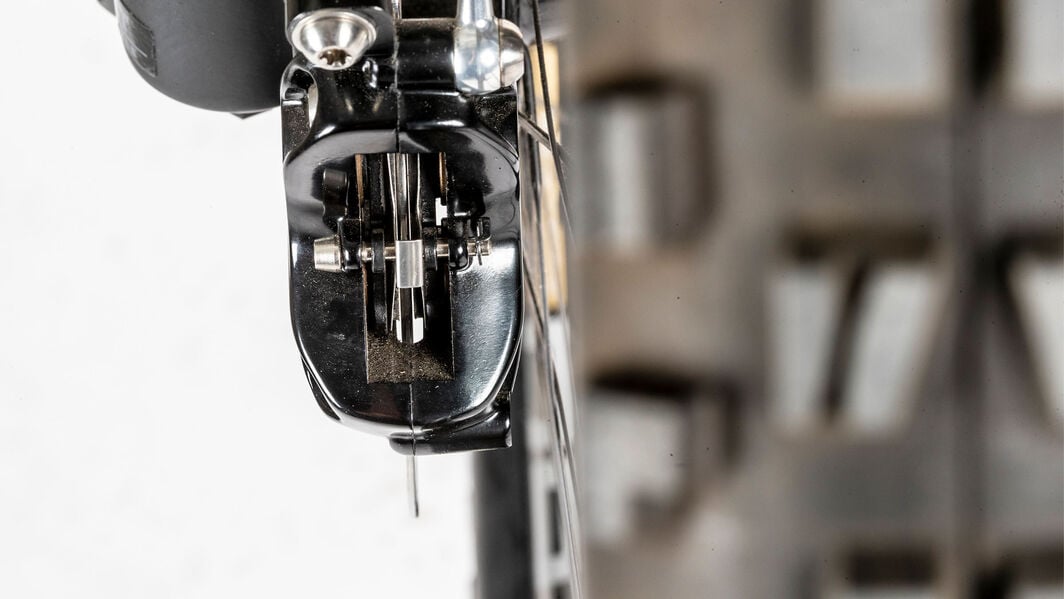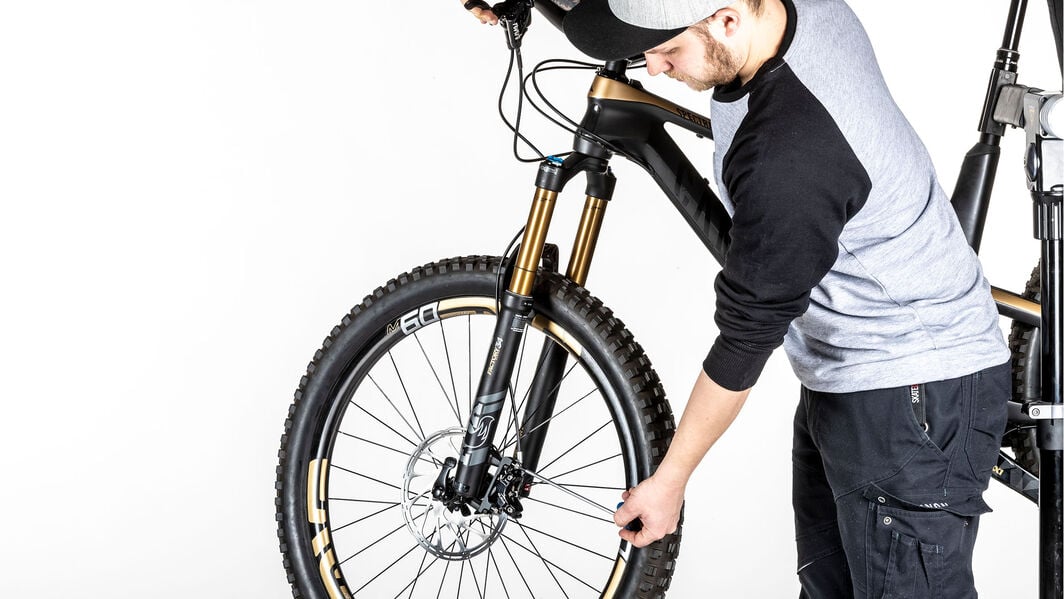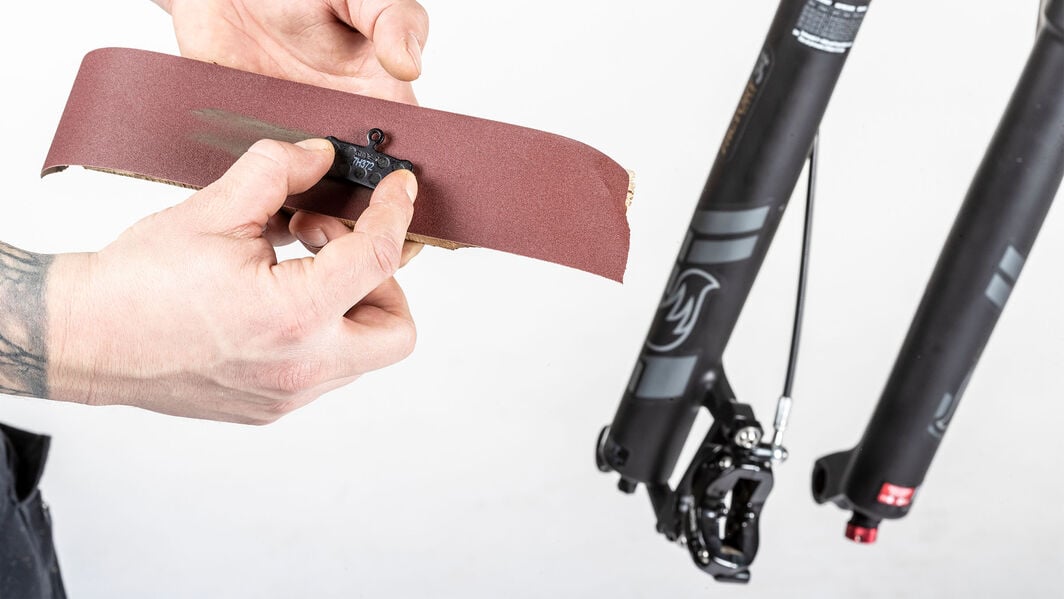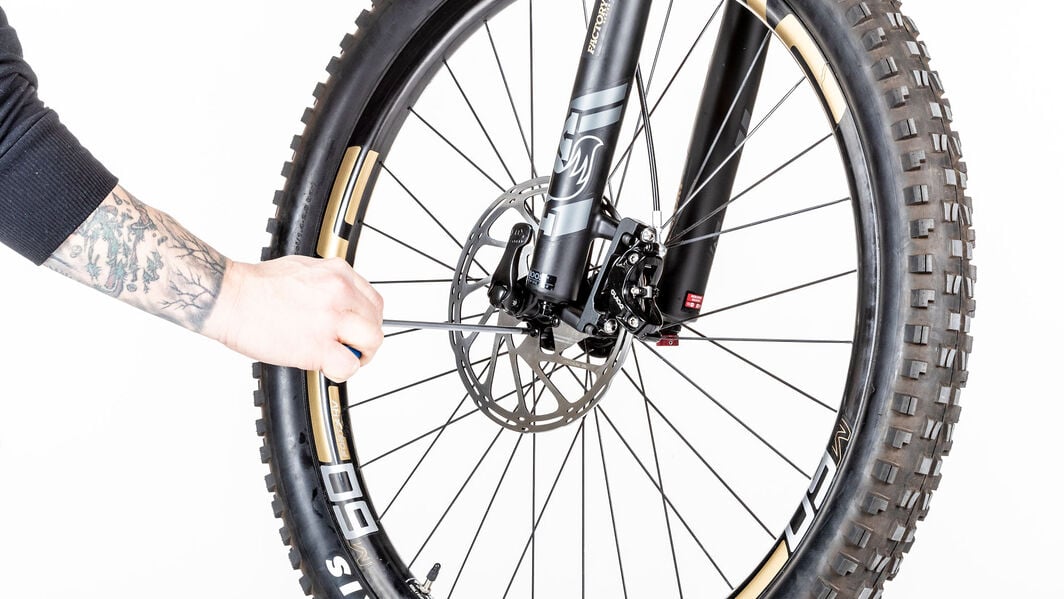Fix squeaking and scraping disc brakes
Fix squeaking and scraping disc brakes
It’s not unusual for disc brakes to make squeaking and scraping noises, especially on new bikes. Here are a few tips on how these noises can be minimized:
-
If you have ridden fewer than 300 km on your bike, the brakes are not yet fully ridden in. In this case it is very probable that the noises will go away themselves if you ride more.
-
A common cause for squeaking disc brakes are dirty . To clean them, take the wheels out and clean the rotors thoroughly with water or a special cleaner from a good bike shop (Image 1). Oily rotors need very careful cleaning, however oily brake pads can’t be cleaned and must be replaced. In this case, please contact Canyon support directly. Contact
-
Scraping or grinding noises occur if the brake rotors are not correctly centred between the brake pads. This is often because the brake callipers are not exactly centred. To fix this, loosen the screws securing the calliper onto the fork/frame, and pull the brake lever. With the lever pulled tight, retighten the screws firmly. (Figs. 2 and 3).
-
Sand the brake pads (Image 4)
-
Check if all bolts and screws connecting the hub body to the brake rotor are correctly tightened. Please also ensure that you observe the torque limit of 6 Nm. Do not turn the screws if they are already tight. Image 4
-
Disc brakes on a new bike
It is not uncommon for disc brakes on a new bike to make scraping noises, especially when cornering, when riding out of the saddle or when under other extreme loads. Loud squeaking noises can also occur under such circumstances. This does not automatically mean that the brake is badly adjusted. New disc brakes need to be ridden in. If the brake only occasionally slightly scrapes, it is often better to simply accept these noises. Sometimes the clearance between the brake pads and disc is so minute that it is unavoidable that the pads scrape slightly against the disc. Especially when the bike is fitted with very thin discs, it can sometimes occur that the disc makes clicking noises. New brake pads and discs always need to be ridden in when they are brand new. Braking allows the pads and disc to get used to each other. This can take up to 300 km of riding so during these first 300 km, refrain from hard braking. Also avoid braking continuously on long descents and brake gently wherever possible.
Advice: Quick release levers should always point backwards. If not, the lever can catch branches.
Danger:
- The edges of the brake rotors are very sharp. Take extra care not to cut your fingers!
- Clean the brake rotors thoroughly and completely remove any grease or oil on the brake components.
- If brake fluid leaks out or if the brakes or the hose is damaged, stop using your bicycle immediately. In this case, please contact Canyon support directly. Contact
